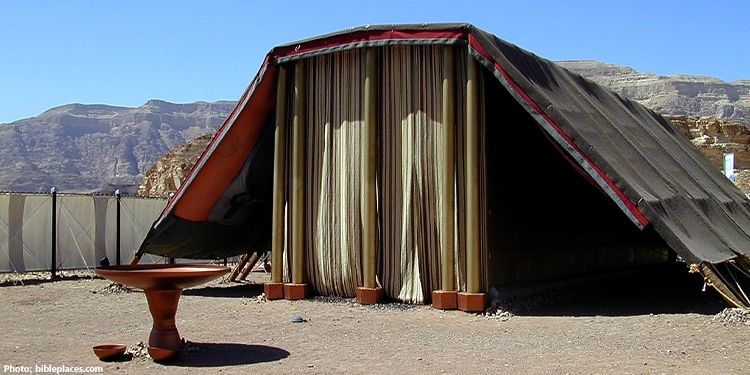The Tents and Tabernacle of Israel
Yael Eckstein | July 14, 2022

How beautiful are your tents, Jacob,
your dwelling places, Israel! — Numbers 24:5
Each week in synagogue, Jews read through the Torah from Genesis to Deuteronomy. The Torah portion for this week is Balak, after the king of the Moabites, from Numbers 22:2–25:9.
I recently met with a group of young pastors who were nearing the end of their first trip to Israel. They had traveled all over the country, visiting biblical sites from the Galilee to the Judean desert and everywhere in-between. When I asked them what the high point of their trip was, I have to say, their answer surprised me.
Without exception, they all agreed that the highlight of their ten days in Israel was sharing a Friday night Shabbat dinner with a Jewish family in Jerusalem. When I probed a bit deeper and asked why, after visiting so many important biblical sites, a Shabbat dinner with a Jewish family was the highlight, the answers I received really made me think.
They described watching parents lay their hands on their children’s heads to bless them, listening to the discussion of the weekly Torah portion and praise songs to God, and the atmosphere around the table as everyone was dressed up and cell phones were nowhere to be found. “I learned how to become a better father and a better servant of God,” was how one pastor described the impact.
The Tents and Tabernacle of Israel
In this week’s Torah portion, because God had intervened, Balaam the sorcerer praised the nation of Israel instead of cursing them, saying “How beautiful are your tents, Jacob, your dwelling places, Israel!”
The Hebrew for “your dwelling places” in this verse is mishkenotecha, which is the plural of mishkan, which actually means “tabernacle.” A tabernacle is a dwelling place for God, a place for all to come and worship.
I believe that the reason that Balaam’s blessing praises both the tents and Tabernacle of Israel is because of the mission and role of the nation of Israel. We are called to be a light to the world, to inspire the world to draw closer to our God, the God of Israel.
One way we do this is through what happens to us in public, on the world stage. This is like the Tabernacle or the Temple in Jerusalem that Isaiah called “a house of prayer for all nations” (Isaiah 56:7). The Tabernacle represents the context where the entire world encounters the God of Israel. But we also inspire with what goes on in our “tents,” in the private domains of our homes and families, around the Shabbat table, praising and worshiping God as a family.
Your Turn:
Think about your own Tabernacle and tents. How is God proclaimed and held up for worship in both places? How might you help others encounter God in both places?
